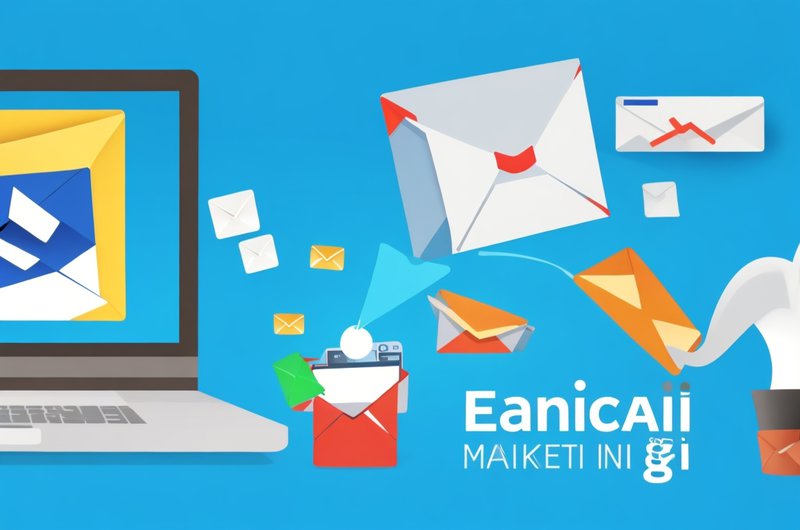Compare Email Marketing for B2B Vs. B2C Companies

Did you know that email marketing is one of the most effective tools for both B2B and B2C companies? However, the strategies and challenges differ significantly between the two.
Understanding these differences can help businesses tailor their email campaigns to maximize their impact and drive results.
In this article, we will compare email marketing for B2B and B2C companies, exploring the key distinctions in target audience, unique challenges, and strategies for success.
By the end, you will have a deeper understanding of how to optimize your email marketing efforts, regardless of your business type.
Key Takeaways
- B2B companies target other businesses and professionals, while B2C companies target individual consumers driven by personal needs and emotions.
- B2B email marketing requires content that educates and informs decision-makers, influencers, and stakeholders.
- Building long-term relationships is crucial for B2B email marketing, while B2C email marketing focuses on increasing open rates and conversion rates.
- Personalizing B2B emails based on recipient’s industry, role, and challenges, and clearly communicating the value and benefits of the product or service are important for maximizing conversion rates.
Key Differences in Target Audience
In the present discussion, we will explore the key differences in the target audience between B2B and B2C companies in the realm of email marketing. Understanding these differences is crucial for effective email marketing campaigns.
B2B companies primarily target other businesses and professionals, focusing on building long-term relationships and providing industry-specific solutions. Their target audience consists of decision-makers, influencers, and stakeholders who are looking for products or services that can improve their business operations.
On the other hand, B2C companies target individual consumers who are driven by personal needs, desires, and emotions. B2C email marketing campaigns are more focused on appealing to the emotions of the consumers, offering personalized experiences, and encouraging impulse buying.
Both B2B and B2C companies need to tailor their email marketing strategies to resonate with their respective target audiences and achieve their desired outcomes.
Unique Challenges in B2B Email Marketing
While B2C email marketing campaigns may focus on appealing to emotions and encouraging impulse buying, B2B email marketing faces unique challenges in targeting decision-makers, building long-term relationships, and providing industry-specific solutions.
Unlike B2C customers, B2B decision-makers are often driven by rational decision-making processes rather than impulsive buying behaviors. This requires B2B email marketers to create content that educates and informs, highlighting the value and benefits of their products or services.
Furthermore, building long-term relationships with B2B customers is crucial for repeat business and referrals. B2B email marketers must establish trust, credibility, and expertise over time to foster these relationships.
Lastly, B2B email marketing must provide industry-specific solutions that address the unique needs and challenges of each business. This requires a deep understanding of the target industry and the ability to tailor content accordingly.
Overall, B2B email marketing requires a strategic and targeted approach to effectively reach decision-makers and provide value within a specific industry.
Strategies for Effective B2C Email Campaigns
A key strategy for effective B2C email campaigns is to utilize personalized subject lines and compelling call-to-actions to increase open rates and conversion rates, respectively. Personalization is crucial in capturing the attention of consumers who are bombarded with numerous emails daily. By addressing recipients by their names and tailoring subject lines to their interests, companies can create a sense of relevance and increase the likelihood of email opens.
Additionally, incorporating compelling call-to-actions that provide clear instructions and value propositions can lead to higher conversion rates. B2C companies should focus on creating a sense of urgency or offering exclusive benefits to entice recipients to take action.
Maximizing Conversion Rates in B2B Emails
To maximize conversion rates in B2B emails, companies should strategically incorporate persuasive language and concise content, as well as tailor the messaging to address the specific pain points and needs of the target audience. Here are three key strategies to achieve this:
- Personalization: B2B emails should be personalized to the recipient’s industry, role, and challenges. By demonstrating a deep understanding of their pain points, companies can establish credibility and build trust with their audience.
- Clear value proposition: B2B buyers are focused on the return on investment. Emails should clearly communicate the value and benefits of the product or service being offered, highlighting how it can solve their specific problems and improve their business outcomes.
- Strong call to action: B2B emails should include a clear and compelling call to action. Whether it’s requesting a demo, scheduling a meeting, or downloading a whitepaper, the call to action should be easy to understand and motivate the recipient to take the desired action.
Analyzing ROI: B2B Vs. B2C Email Marketing
One key aspect of the current discussion on analyzing ROI in B2B vs. B2C email marketing is the importance of tracking metrics such as click-through rates, open rates, and conversion rates to determine the effectiveness of each campaign. Tracking these metrics allows marketers to understand how their emails are performing and make data-driven decisions to optimize their campaigns.
In B2B email marketing, where the target audience is typically smaller and focused on specific industries or job roles, tracking metrics becomes even more crucial. By analyzing the ROI of B2B email campaigns, marketers can identify which strategies and tactics are generating the most leads and conversions, allowing them to allocate resources effectively.
On the other hand, B2C email marketing campaigns often have a larger target audience, making it essential to analyze ROI to ensure that marketing efforts are reaching the right audience and driving desired actions.
Overall, analyzing ROI in both B2B and B2C email marketing is essential for success in today’s competitive landscape.
Frequently Asked Questions
How Do B2B and B2C Companies Differ in Terms of Their Email Marketing Goals?
B2B and B2C companies differ in terms of their email marketing goals. B2B companies often focus on lead generation and nurturing relationships with potential clients, while B2C companies aim to drive sales and engage with existing customers through personalized offers and promotions.
What Are Some Common Challenges Faced by B2C Companies When It Comes to Email Marketing?
B2C companies often face challenges in email marketing, such as low open rates and high unsubscribe rates. These challenges can be attributed to factors like email overload, irrelevance of content, and the need for personalized and engaging communication.
Are There Any Specific Strategies That B2B Companies Can Use to Personalize Their Email Campaigns?
B2B companies can personalize email campaigns by segmenting their audience based on industry, job title, and company size, tailoring content to address specific pain points and offering personalized solutions. This approach enhances engagement and drives conversions.
How Can B2C Companies Optimize Their Email Campaigns to Increase Customer Engagement?
To optimize their email campaigns and increase customer engagement, B2C companies should focus on personalization, compelling subject lines, clear call-to-actions, mobile responsiveness, and segmentation based on customer preferences and behaviors.
What Metrics Should Be Considered When Analyzing the Return on Investment for B2B and B2C Email Marketing Efforts?
When analyzing the return on investment for B2B and B2C email marketing efforts, it is crucial to consider metrics such as open rates, click-through rates, conversion rates, customer lifetime value, and revenue generated.







